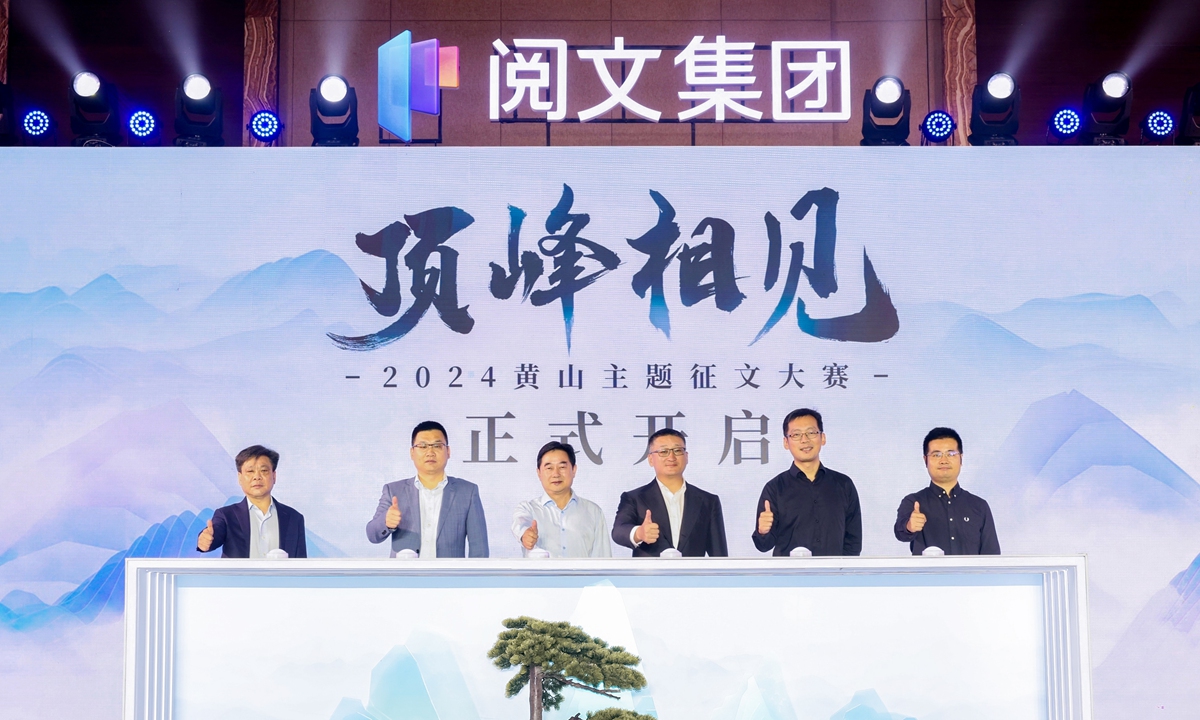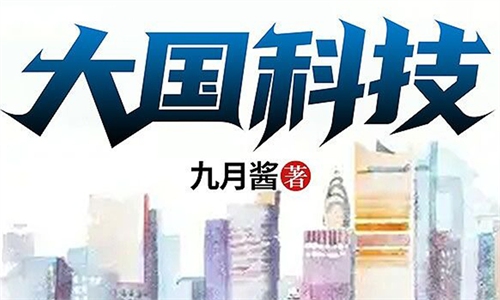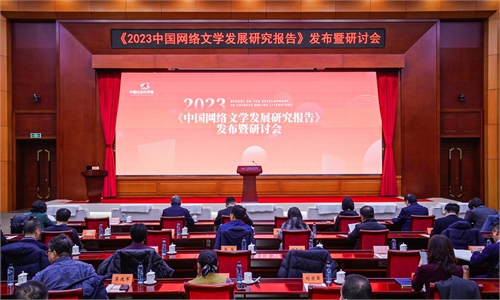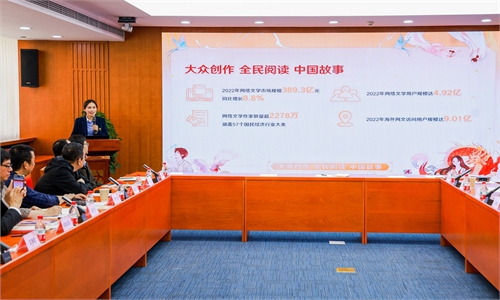ARTS / CULTURE & LEISURE
Short dramas, IP adaptions, AIGC boost development of online literature
Half of new platinum writers under the age of 30

Photo: Courtesy of China Literature
China's online novels have benefited from the booming short drama industry, the intellectual property (IP) adaptions as well as fast developing AI tools, according to the Online Creation Conference running from Wednesday and Thursday in Huangshan, East China's Anhui Province."The past year has seen an industry full of vitality as new writers emerged and popular new books continued to bring soaring income to writers. At the same time, IP adaptions and Chinese literature going overseas have moved to a new level, increasing their influence and commercial value," said Hou Xiaonan, president of China Literature, the Chinese online literature giant that hosted the conference, on Wednesday.
"To serve creators well, we must continue to do two things: First, cultivate good soil so that good stories can continue to grow; second, set up a good platform to allow good content to achieve greater value."
More and more young writers are able to gain fame through the publication of a single book. Data released at the conference showed that nearly half of the new platinum writers in 2024 are under the age of 30. The number of works with over 100,000 subscriptions, including Lord of Mysteries 2: Circle of Inevitability and The Master of the Ming Dynasty, increased by 125 percent year-on-year. The average creative income of active writers on China Literature increased by more than 32 percent year-on-year, achieving the largest growth in the past five years.
The ecosystem centered on online literature has become richer with creative products such as games, short dramas and TV adaptions. The popular TV hit Joy of Life has announced a collaboration with overseas streaming platform Disney +, becoming one of the hottest TV series from the Chinese mainland on the platform.
In terms of topics, China's online literature has covered various themes, ranging from the craze for traditional Chinese culture to science-fiction and more. From online literature to movie and TV productions, "The core of an adaptation must express cultural heritage, while the core of a novel must have the recognition and praise of traditional culture lovers," said Yu Wanqin, a vice president of New Classics Media.
The popularity of Joy of Life lies in its memorable scenes, such as the main character Fan's recitations of renowned Chinese poems and widely admired Chinese novel Dream of the Red Chamber. According to Yu, the season 1 and season 2 of Joy of Life have been so well received in Chinese-speaking regions "is due to our own cultural expression and inheritance of culture."
Online literature has become an important source of innovative themes as IP adaptions make a Chinese IP universe possible. Yang Chen, editor-in-chief of China Literature, told the Global Times that their senior editors offer professional suggestions to writers at the early stage so their works can be more suitable for future adaptions and the larger creative industry.
With the fast development of AI technology, various tools have been introduced to help Chinese online literature go abroad. AI-generated content (AIGC) has been gradually applied in overseas scenarios: AI can aid multi-lingual translation with one click, reducing costs by an average of 90 percent.
Driven by a global love for reading Chinese online literature, these works are having an increasingly obvious impact on the Asian film and television industry, Sun Jiashan, an associate researcher at the Central Academy of Culture and Tourism Administration, told the Global Times on Wednesday.
He said that many of these online IPs, such as Joy of Life, are very closely integrated with China's excellent traditional culture. "Many of the stories and values from China's excellent traditional culture are made more vivid and popular through online novels."
Additionally, AIGC is also being used as a helping hand for writers with basic works, like picking names for characters and generating portraits of these characters, according to Yang.
In short dramas, AI has gone further by helping generate posters and recreating scenes, said Xie Yingying, who is in charge of short dramas at Chinese film and TV studio Huayi Brothers.

Photo: Courtesy of China Literature




